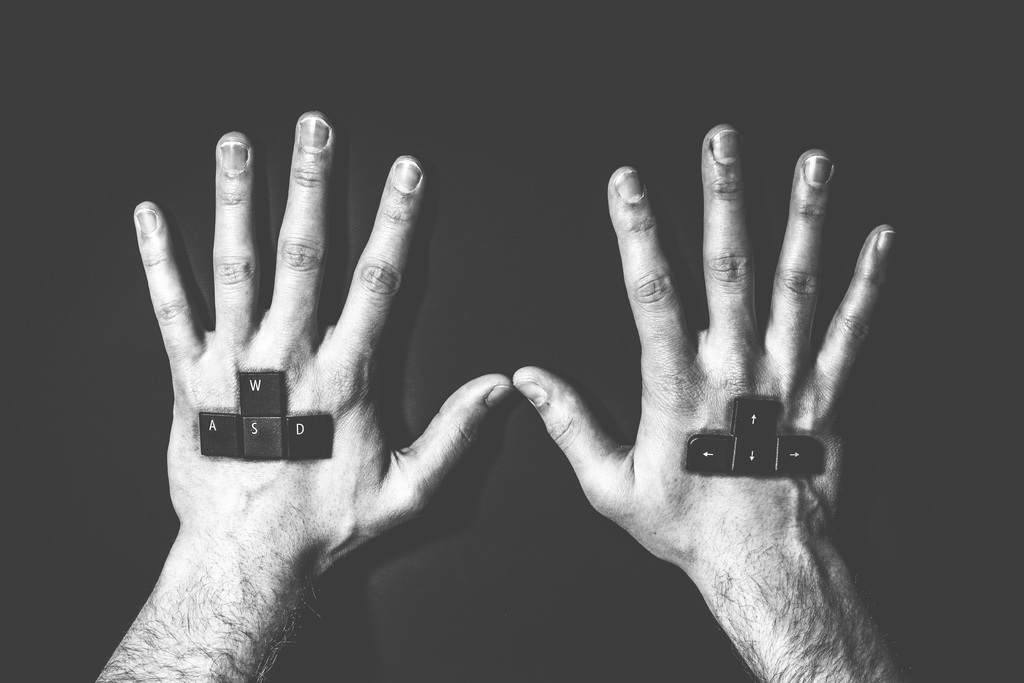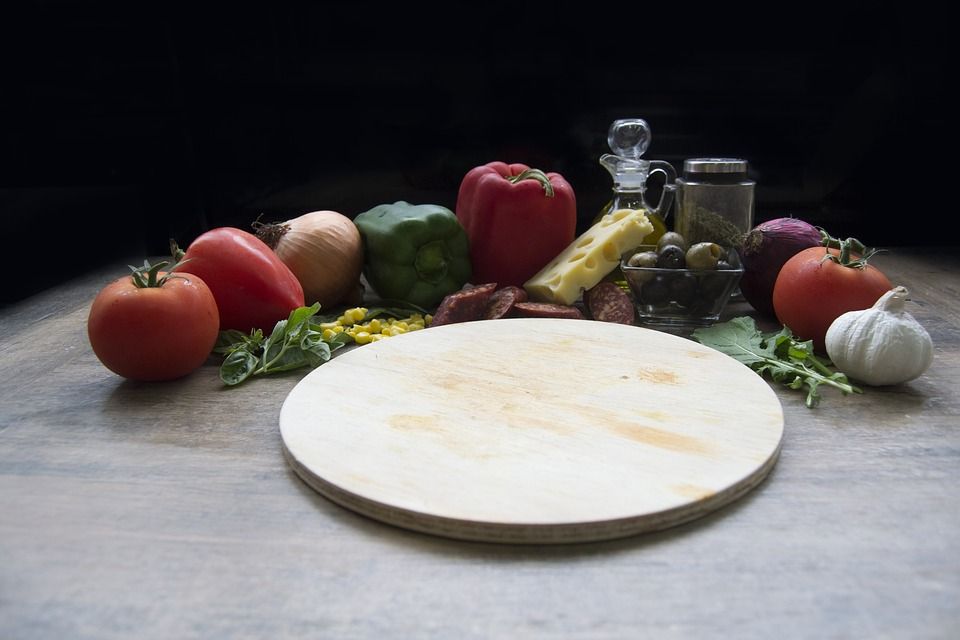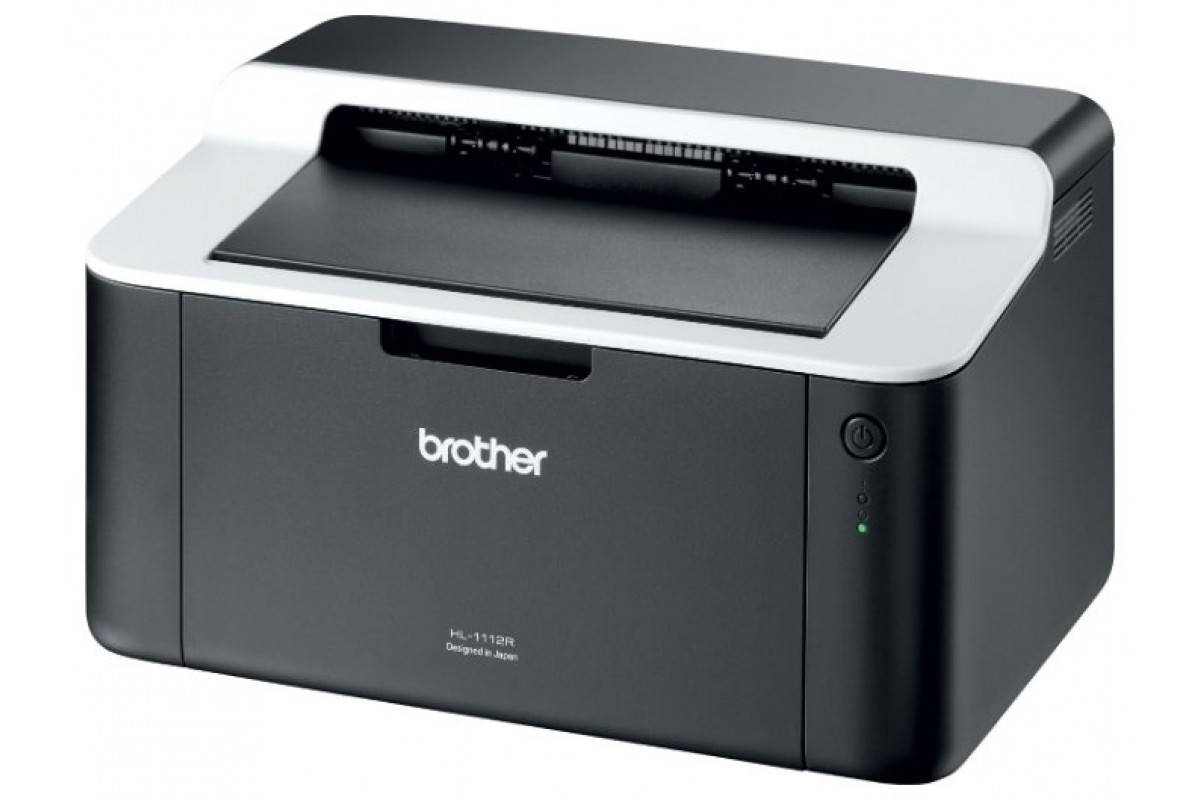The best cover sewing machines in 2020
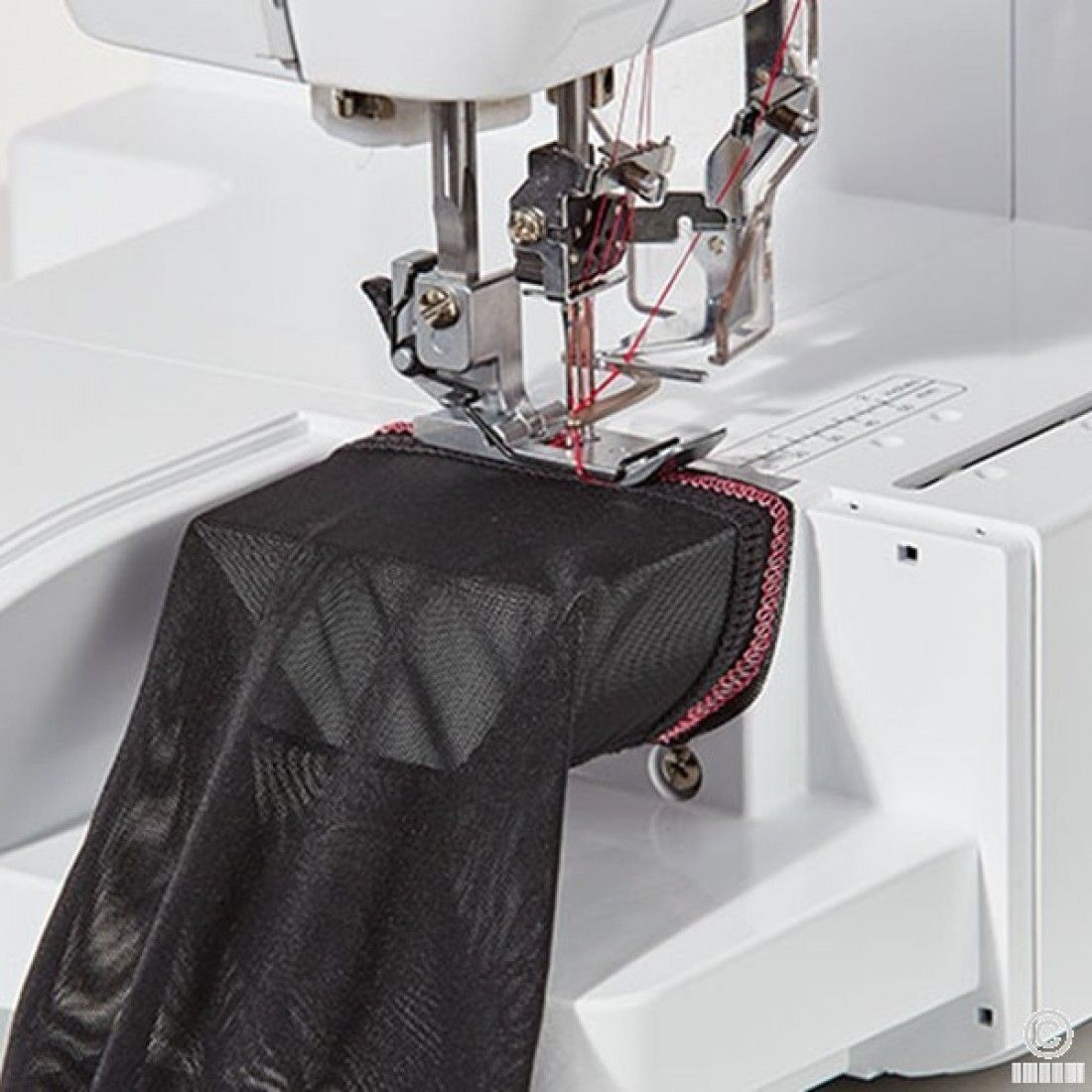
For those who are fond of sewing, to expand the possibilities for making clothes from different materials, they need overlock and a cover sewing machine. They have important additional functions that are not available on a conventional sewing machine.
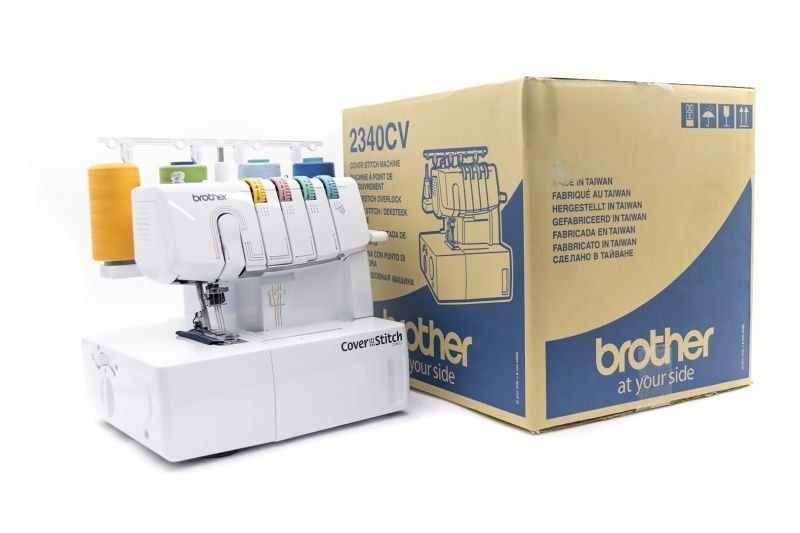
What it is
A cover-stitching (cover-stitching) machine is needed to make a special flat seam, with which the edges of knitted and crocheted products, clothes from flowing fabrics are processed. With its help, the details are connected, the braid, elastic band, finishing of the sleeves and the bottom of the thing are sewn. The design of the technique, providing for the operation of 2 to 4 needles and loopers, allows you to obtain flat stitches. A chain seam is formed that can stretch in length when the fabric itself is stretched. On the front side of the product, it looks like two parallel lines, on the wrong side - it resembles an overlock seam. The sewing machine is not designed to sew such stretch seams.
The correct selection of threads is an important point to ensure a quality seam. Unsuitable needles or threads of poor quality, excessive tension or looseness all affect the result, leading to skipped stitches.
Due to the peculiarities of the fabric and processing technology, knitted things are comfortable and practical to wear: they stretch well without damaging the seams, do not wrinkle much, and easily tolerate repeated washing.
This sewing technique is professional (industrial) and household. The first type with 2-8 needles is used in factories and industries for mass tailoring, the second, with 1-3 needles, in small ateliers, at home.

How to choose a cover sewing machine
The main selection criteria are functionality and technical characteristics.
- Distance between extreme needles. The stitch width depends on this indicator. The machine can have 1 needle (for simple joining of parts), 2 needles (with a seam width of 5.5 cm) and 3 needles (in this case, the seam width is 6.5 mm). The more needles the device has, the more choice of stitch types. If you need narrow seams, choose the technique with two needles, if wider, then with three.
- The type of platform with which the equipment is equipped for the convenience of working on it when processing individual, including complex, items of clothing.
- Removable flat. Suitable for attaching a bias tape, processing the bottom of products.
- With a recess for the edging. With its help, you can make high-quality edging of clothes from soft fabrics with an oblique inlay.
- In the form of a cylinder. It is used when sewing children's linen, for processing long narrow parts.
- It is important that the clipper is equipped with a separate tissue feed conveyor that allows both collection and stretching of the material.
- Type of seams to be performed.
- Triple, wide - 6.5 mm wide;
- Narrow (left and right) - 2.8 mm wide.
- Type of fabric feeding. Some models have a function of differentiated material feeding: by changing the conveyor speed of the machine, you can stretch the fabric or collect it in folds.
- Automatic needle threading. More expensive equipment is equipped with this function.
- Thread tension method. It is manual and automatic. In the first case, the tension force of each of the threads will be different, so a certain skill and skill in sewing will be required. In the second case, the possibility of errors in the sewing process is significantly reduced.
- Option to adjust the pressure of the presser foot. For light flowing tissues, the maximum pressure is provided, for dense ones, on the contrary, the minimum. The function can be carried out both in manual and automatic mode.
- The height of the foot is the distance between it and the working surface of the machine. It can vary from 3 to 15 mm, changing with the help of smooth or stepwise movement.
- Sewing speed. The parameter shows how many stitches the machine is able to sew in one minute. On average, this number is between 1000 and 1500 stitches.
- Stitch sizes. Its length can vary from 1 to 6.5 mm, width - from 1 to 15 mm. The value of the indicators is related to the purpose of the work: for example, wide stitches are used to make decorative seams.
- The total number of operations. For modern models, it can range from 2 to 50. Accordingly, the more functional the machine, the higher its cost.
- Device power. Directly affects the degree of energy consumption. In modern models, a powerful mechanism and electronic control are installed, which ensure reliable and correct operation of the machine. The power value is 70-250 W.
- Cutting threads. It can be carried out in manual mode using a blade or automatically, using a special button.
- Color marking of the thread guide is done on the machine body for ease of use.
Sewing equipment may also include a special container for thread scraps and pieces of fabric, as well as a protective cover for storage - soft or hard. A number of tools are intended for servicing the machine: screwdrivers, tweezers, cleaning brushes.
When choosing a model, you need to focus on the size of the stitch being performed, the ergonomics of the device and the noiselessness of its operation.
In comparison with sewing machines, the choice of "folds" is more limited: these are highly specialized devices, not every manufacturer is profitable to produce them. Preference should be given to popular models of well-known brands, distinguished by high quality and functionality.
A coverstitch machine can be bought profitably in an online store, however, in this case there is always a risk of getting a model of not the best quality. The advantages of an offline store specializing in the sale of sewing equipment are that there is an opportunity to see the sample you like "live", to get advice from the seller and a warranty card.
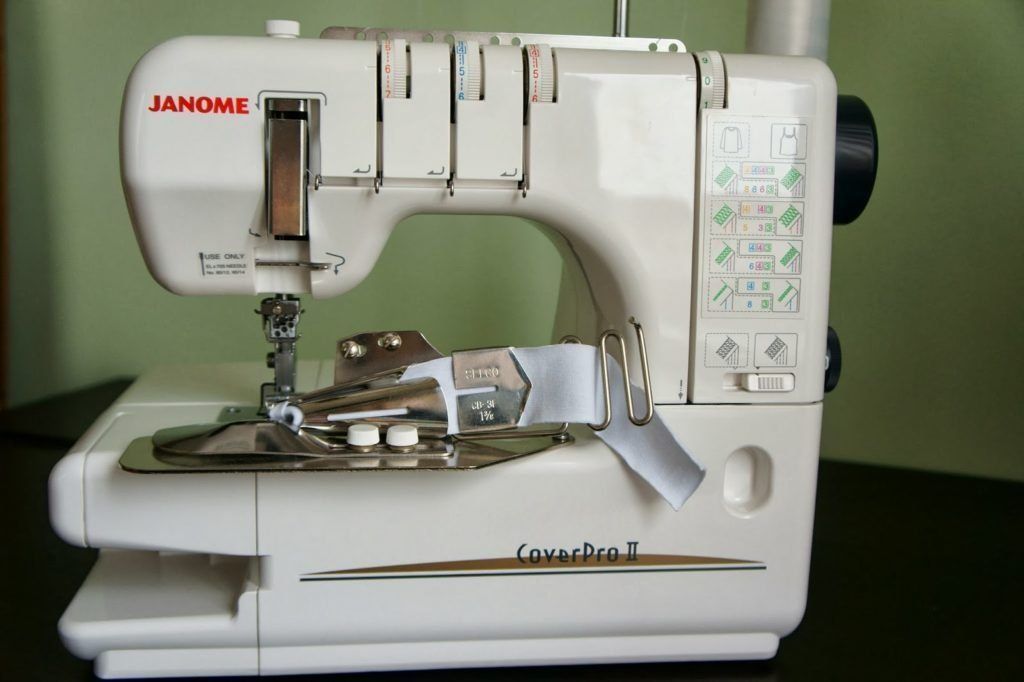
The best manufacturers: the equipment of which company is better to buy
- Brother (Japan);
- Janome (Japan);
- Baby Lock (Japan);
- Juki (Japan);
- Merrylock (Taiwan);
- Minerva (Austria);
- Bernina (Switzerland);
- Elna (Switzerland).
Rating of quality cover sewing machines
Household models
Merrylock Cover Stitch Auto
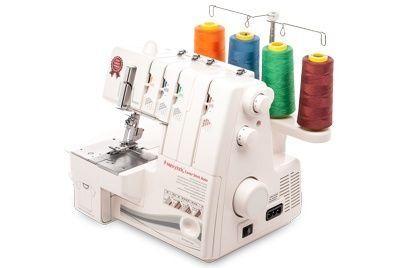
A relatively inexpensive model is distinguished by its convenience, practicality, and efficiency. The machine is capable of sewing 1,300 stitches in one minute. It can be used to make stitches of different sizes: length from 1 to 4 mm, width from 1 to 5 mm.
- 5 sewing operations;
- The number of threads ranges from 2 to 4;
- Automatic threading of the looper;
- Adjusting the fabric pressure;
- Color marking of threads;
- Thread tension is automatically controlled;
- Low weight.
- No electronic control with displaying operations;
- Skipping stitches is possible.
Average price: 17,700 rubles.
Brother 2340 CV
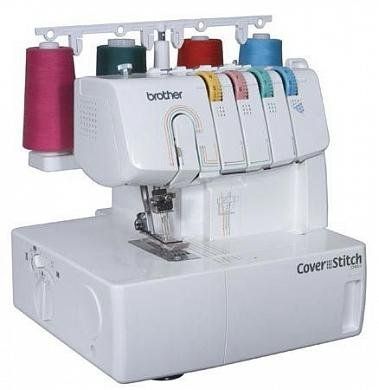
Technical characteristics of this model from a well-known manufacturer - power 90 W, 1000 stitches per minute, a seam of 2, 3 or 4 threads.
- Color marking;
- Removable platform;
- Separate feeding of fabric.
- No needle refill.
Average price: 19,000 rubles.
Minerva M2000 C
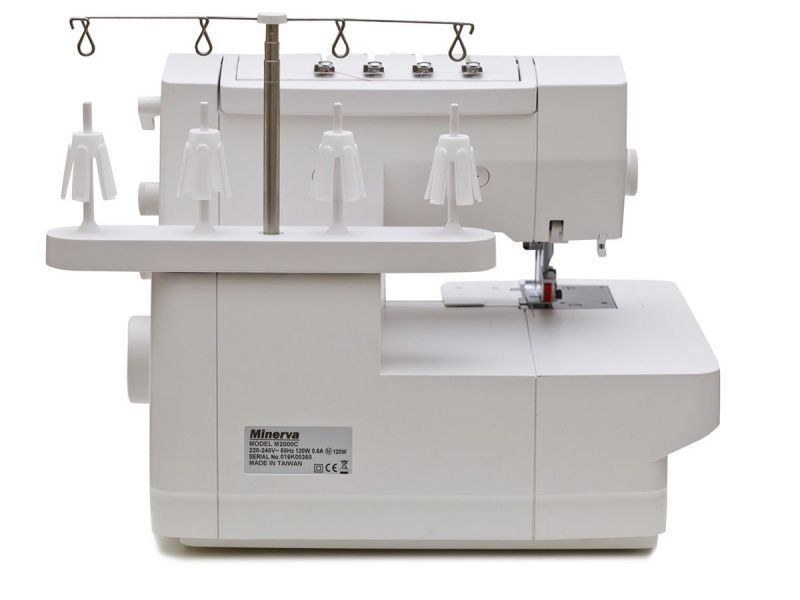
The model from the Austrian manufacturer performs 4 sewing operations, making a seam of 2-3 or 4 threads. Due to the power of 120 watts, its working capacity is 1100 stitches per minute.
- High performance.
- No needle and looper auto-threading.
Average price: 21,000 rubles.
Janome Cover Pro 1000 CP
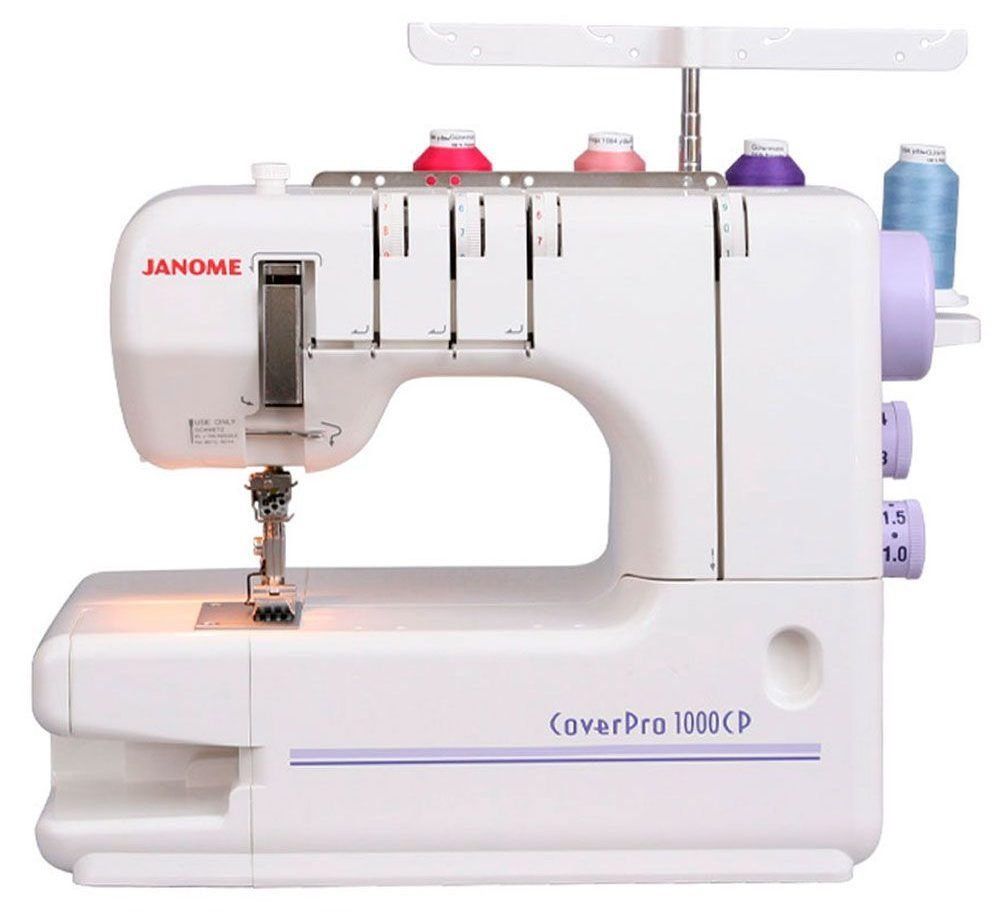
The machine is suitable for those who are just starting to learn sewing skills and do not want to invest in expensive equipment. The lack of electronic control, combined with the minimum set of necessary options, allows it to be an affordable device. The model combines functionality and budget cost. It performs 4 sewing operations, allowing you to sew 3 or 4 threads. By installing additional feet, the list of operations can be increased.
- Works with all types of materials;
- Needle and looper self-threading;
- Maximum speed - 1000 stitches per minute;
- High quality flat seams;
- Removable sleeve;
- Puncture force stabilizer;
- Low weight.
- Sometimes there may be skipped stitches;
- Doesn't work well on delicate fabrics;
- Not all types of thread will work;
- The accessory drawer is not very convenient.
Average price: 18 300 rubles.
Janome CoverPro 7
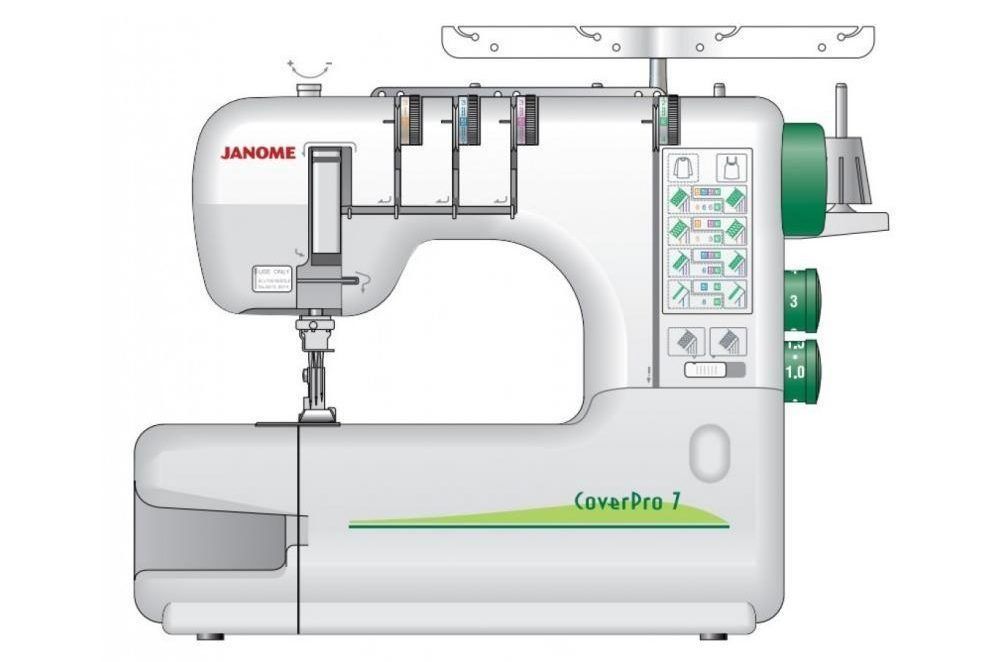
This technique has earned positive reviews from home craftswomen and professional dressmakers. The machine features good workmanship, easy settings, and convenient adjustment of the thread tension. Performs both universal and creative tasks.
- 10 operations;
- Removable sleeve;
- Hinged looper cover;
- Large working surface;
- Stylish case design.
- Not cheap model.
Average price: 28,000 rubles.
Family MasterLock 8000
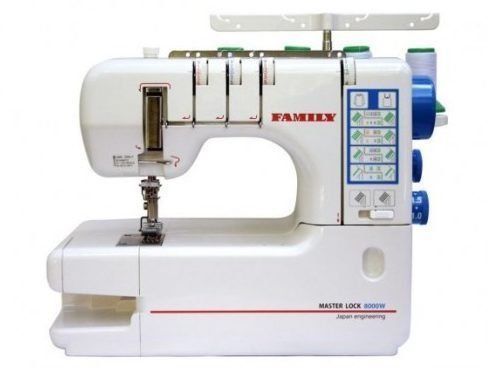
90W power allows the model to work effectively with 3-4 threads. The machine performs 1000 stitches per minute, the size of which is 4 mm in length and 6 mm in width. The removable sleeve makes it possible to conveniently handle the cuffs and collars of products. Suitable for sewing fabrics of any density.
- Good build quality
- Puncture force stabilizer;
- Colored thread coding.
- High price;
- No automatic needle threading and looper;
- Lack of display.
Average price: 30,000 rubles.
Fujima 14 U557
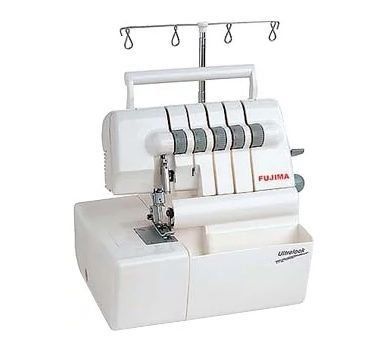
Compact technology effectively operates in 20 modes declared by the manufacturer. The seams are made by weaving 2-5 threads. Its technical parameters - productivity 1300 stitches per minute, stitch size - 4/8 mm (length / width).
- Quiet at work;
- Garbage container included;
- Designed for material of any thickness.
- Not cheap model.
Average price: 24,000 rubles.
Elna easycover
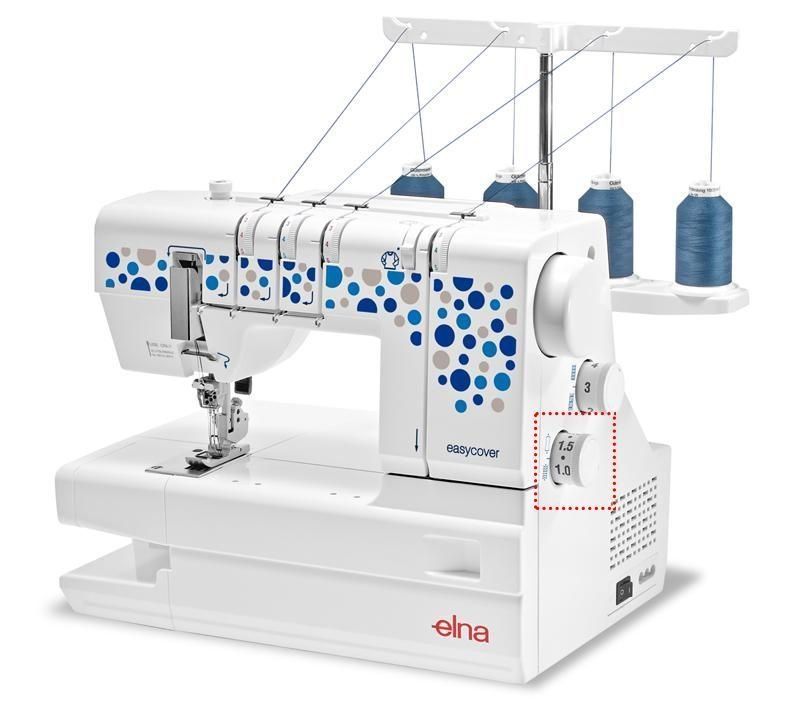
The easy-to-use and reliable model was released in 2018 and has gained popularity among sewing enthusiasts. Its advantages are a large working space, a removable sleeve, allowing you to work with products of any size and any complexity of processing.
- 3 needles at work;
- Silence;
- Automatic thread tension.
- High price.
Average price: 30,900 rubles.
Janome Cover Pro 7000 CPS
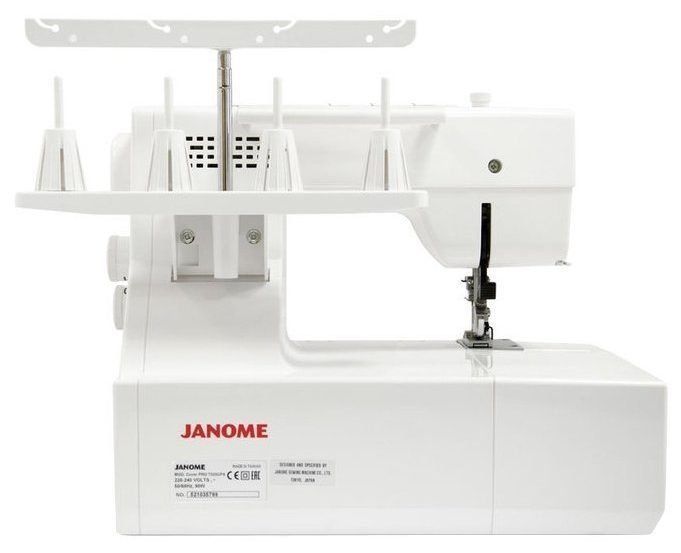
The main advantage of this model is the presence of a seam reinforcement system. This is important in the production and finishing of sportswear. Its main parameters are: working power 90 W, productivity - 1000 stitches per minute, stitch dimensions - 4/6 mm in length and width, respectively.
- 7 working steps;
- 2 to 4 threads per work;
- Self-threading;
- Processing of various materials;
- LED lights;
- Large work space;
- Stability of the structure.
- Large weight (9.5 kg);
- High price.
Average price: 33,000 rubles.
Professional models
Elna 444
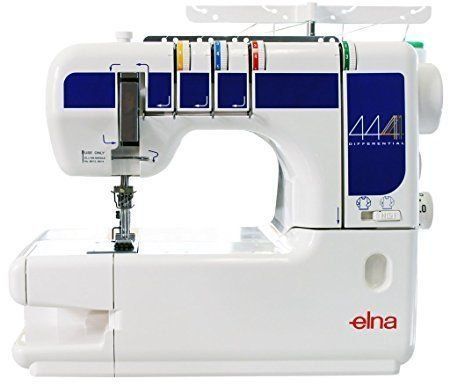
A quality and reliable model that works with a wide variety of materials: silk and knitwear, denim and imitation leather. Performs 14 operations, the seams are neat.Suitable for both novice dressmakers and for work in the atelier.
- Threads are easy to thread;
- Low noise level during operation;
- Free sleeve;
- All adjustments are outside;
- 7 types of stitches;
- Productivity - 1000 stitches per minute;
- Looper refueling.
- We need branded threads;
- There is no needle threading.
Average price: 29,000 rubles.
Juki MF-7723-V10-B48
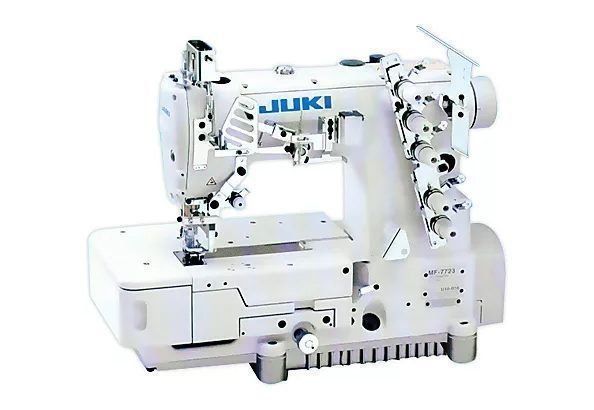
A device with a high performance (power 400 W, 6500 stitches per minute) is able to process knitted fabrics of any texture and thickness.
- 5 threads in work;
- Automatic lubrication of parts.
- High price.
Average price: 50,000 rubles.
The purchase of a cover sewing machine allows you to significantly expand the range of things that you can sew. For domestic use, a technique with three needles is suitable for obtaining different seams. Equally important are such parameters as stitch sizes, the option of differentiated feed of the material, the pressure regulator on the foot. For sewing clothes in production, model parameters such as power, productivity, number of operations, as well as the degree of noise generated during operation are important.
new entries
Categories
Useful
Popular articles
-

Top rating of the best and inexpensive scooters up to 50 cubic meters in 2020
Views: 97661 -

Rating of the best materials for noise insulation for an apartment in 2020
Views: 95022 -

Rating of cheap analogues of expensive medicines for flu and colds for 2020
Views: 91751 -

The best men's running shoes in 2020
Views: 87680 -

Top ranking of the best smartwatches 2020 - price-quality
Views: 85091 -

Best Complex Vitamins in 2020
Views: 84801 -

The best dye for gray hair - 2020 top ranking
Views: 82406 -

Rating of the best wood paints for interior use in 2020
Views: 77202 -

Ranking of the best action cameras from China in 2020
Views: 75269 -

Rating of the best spinning reels in 2020
Views: 74827 -

The most effective calcium supplements for adults and children in 2020
Views: 72462 -

Top rating of the best in 2020 means for male potency with a description
Views: 68296
